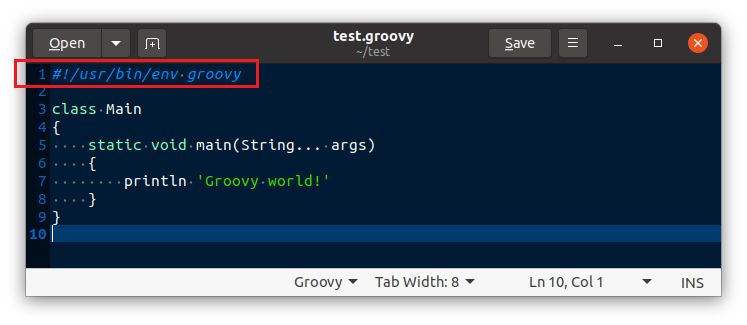Jenkinsfile naming convention
Kris Z
Alan Sparks
Kris Z
I mean, it's going backwards several decades. As of now, all operating systems: Linux, Mac, Windows, and others understand the concept of having a file extension. I use Linux as my default development environment. Unix-like operating systems have also come as far as adding a shebang to the top of the file to all files which include source code that is a scripting language. This concept of using a shebang is very well understood in Unix-like operating systems.
There are so many scripting languages out there, how could I tell what language is being used within a Jenkinsfile? I mean it is using Groovy and the Jenkins team is not creating a new scripting language. It should be explicitly indicating that Groovy is being used by the following:
- Adding a ".groovy" to the "Jenkinsfile" example, so it is "Jenkinsfile.groovy".
- Adding a cross-platform compatible shebang to the top of the file:
- Example source code:
- #!/usr/bin/env groovy
- Example screenshot:

How could I submit a defect against the documentation to have this looked at and changed?
Alan Sparks
Mark Waite
I'm not sure how to define "huge deal". I think it really has to do with someone not thinking things through when they document on the Jenkins website: https://www.jenkins.io/doc/pipeline/tour/hello-world/ .

I scoured other training material and I see people that call themselves "trainers" (especially on YouTube) and create files that have a ".pipeline" extension. Which is wrong. If the file is a Groovy scripting language it should be named "pipeline_x.groovy". This way the development tools on Linux can automatically perform syntax highlighting and file type assesment.
How could I submit a defect against the documentation to have this looked at and changed?
--
You received this message because you are subscribed to the Google Groups "Jenkins Users" group.
To unsubscribe from this group and stop receiving emails from it, send an email to jenkinsci-use...@googlegroups.com.
To view this discussion on the web visit https://groups.google.com/d/msgid/jenkinsci-users/23d00a11-4458-4e72-8e7c-76846b56ce4d%40googlegroups.com.
Jérôme Godbout
Probably because only one OS (read Windows here) only rely on extension to open file. The shebang is enough on most system. Pipeline Groovy is not pure groovy, the script into pipeline is a Frankenstein of Groovy and Jenkins features. Like some other point out, it should have been .pipeline or .jenkins or something like that. Really wish they went standard on this one, it make horrible scripts that aren’t reusable anywhere else. I mostly just call python script and gave up on the NON CPS and weird loop behavior, did anyone said script approval madness??? At least my python script can be reuse without the need of the Jenkins special env. Some would say this is a security breach, but I prefer having secure repository and Jenkins server, not the execution of the script per say, it’s grail run to try to secure from code execution like that, it will never be good, it just an annoyance. Wish there was a fork without that script approval and no CPS. Let me secure the source of my Jenkins scripts (certificate and private key ok) and assume my dev know what they do, it’s not like they cannot access the code anyway.
--
You received this message because you are subscribed to the Google Groups "Jenkins Users" group.
To unsubscribe from this group and stop receiving emails from it, send an email to
jenkinsci-use...@googlegroups.com.
To view this discussion on the web visit https://groups.google.com/d/msgid/jenkinsci-users/df168746-6d8e-443c-9279-436eb6f5c58f%40googlegroups.com.
Slide
To view this discussion on the web visit https://groups.google.com/d/msgid/jenkinsci-users/YQBPR0101MB1074F340F78163CEC95CF968CDBC0%40YQBPR0101MB1074.CANPRD01.PROD.OUTLOOK.COM.
Dirk Heinrichs
When adding the extension all the operating systems
--
